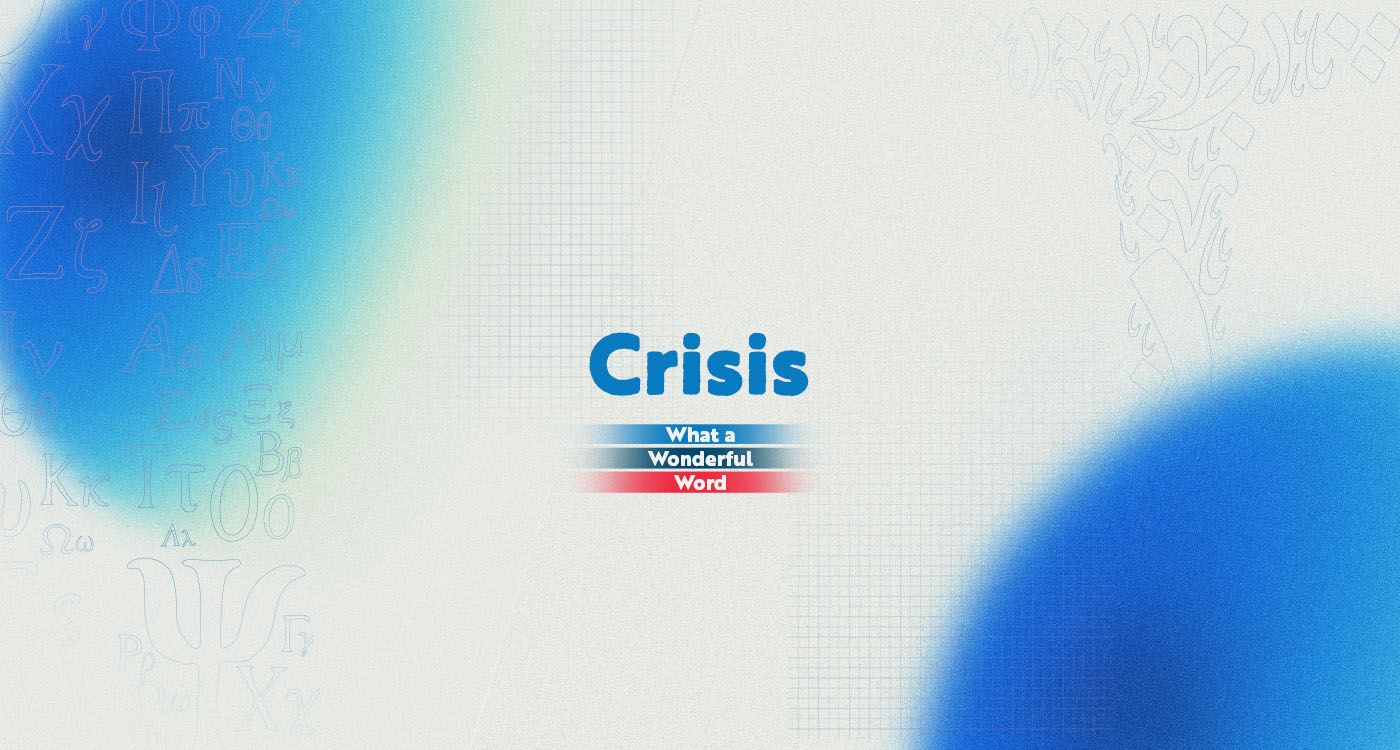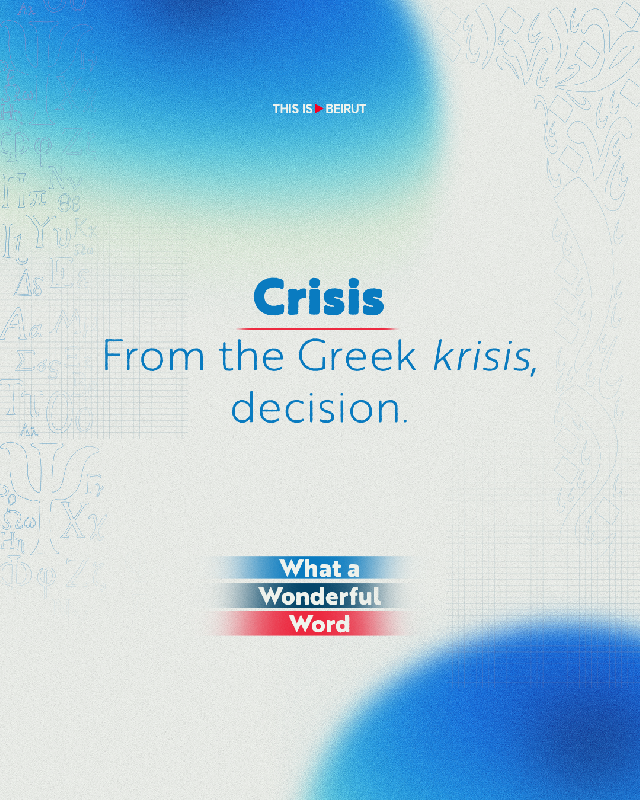
The word “crisis” is everywhere in the public discourse today and is often used to describe a world in turmoil. But do we still know what it really means? With roots in medicine, a long political afterlife and inflated use in the media, this word both mirrors our times and muddles them.
Debt crisis, economic crisis, crisis of confidence in currencies: these expressions now dominate official discourse. Crises seem to multiply endlessly, from climate to democracy, from housing to public health. “Crisis” has become the keyword of our times. But what are we really saying? If everything is a crisis, does anything truly stand out?
Coming from the Body
The word “crisis” comes from the Greek krisis, meaning “decision” or “judgment.” It first entered English in the late 14th century via Latin, initially used in medicine to describe the critical turning point in an illness: when the patient would either recover or worsen.
By the 17th century, its meaning had broadened to denote any decisive or dangerous moment in personal, political or social life.
Over time, it took on metaphorical uses – from “identity crisis” to “economic crisis” – becoming a catch-all for upheaval. Today, dictionaries define it both as “a time of intense difficulty or danger” and “a moment when a vital decision must be made.”
When Everything Wobbles
What do we really mean when we talk about a crisis? A sudden rupture. A tipping point. A crisis is not a slow decline or a long malaise: it is a shock. A knot of tensions that suddenly snaps, forcing decisions to be made.
This is why scholars warn against the overuse of the term “crisis:” using it to describe long-term, complex challenges like climate change or systemic inequality can be misleading.

A Mirror of Our Values
Crisis compels choice. It shows what we are willing to lose and what we fight to preserve. In this sense, a crisis is not just a threat, it is also fertile ground.
Whether it’s the October 7 attack and the war that followed, or the ongoing conflicts in Ukraine, Sudan or Yemen, each crisis forces societies to confront their limits and reconsider their moral and political compass.
Perhaps it’s time to return to the root of the word: krisis, decision. For if a crisis is truly a point of no return, it also reminds us that, even in moments of rupture, the power to choose remains.


Comments